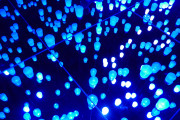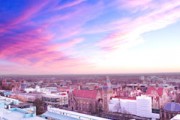 2019-12-19
2019-12-19
Researchers at The University of Manchester in the UK discovered that blue light may not be as disruptive to our sleep patterns as originally thought. According to the team, using dim, cooler, lights in the evening and bright warmer lights in the day may be more beneficial to our health. The scientists claimed that twilight is both dimmer and bluer than daylight and the body clock uses both of those features to determine the appropriate times to be asleep and awake. In the research on mice, the team used a specially designed lighting whose color can be adjusted without changin...
Continue reading →
 2015-04-27
2015-04-27
Research by scientists at The University of Manchester has revealed that the color of light has a major impact on how our body clock measures the time of day.
Continue reading →
 2015-04-27
2015-04-27